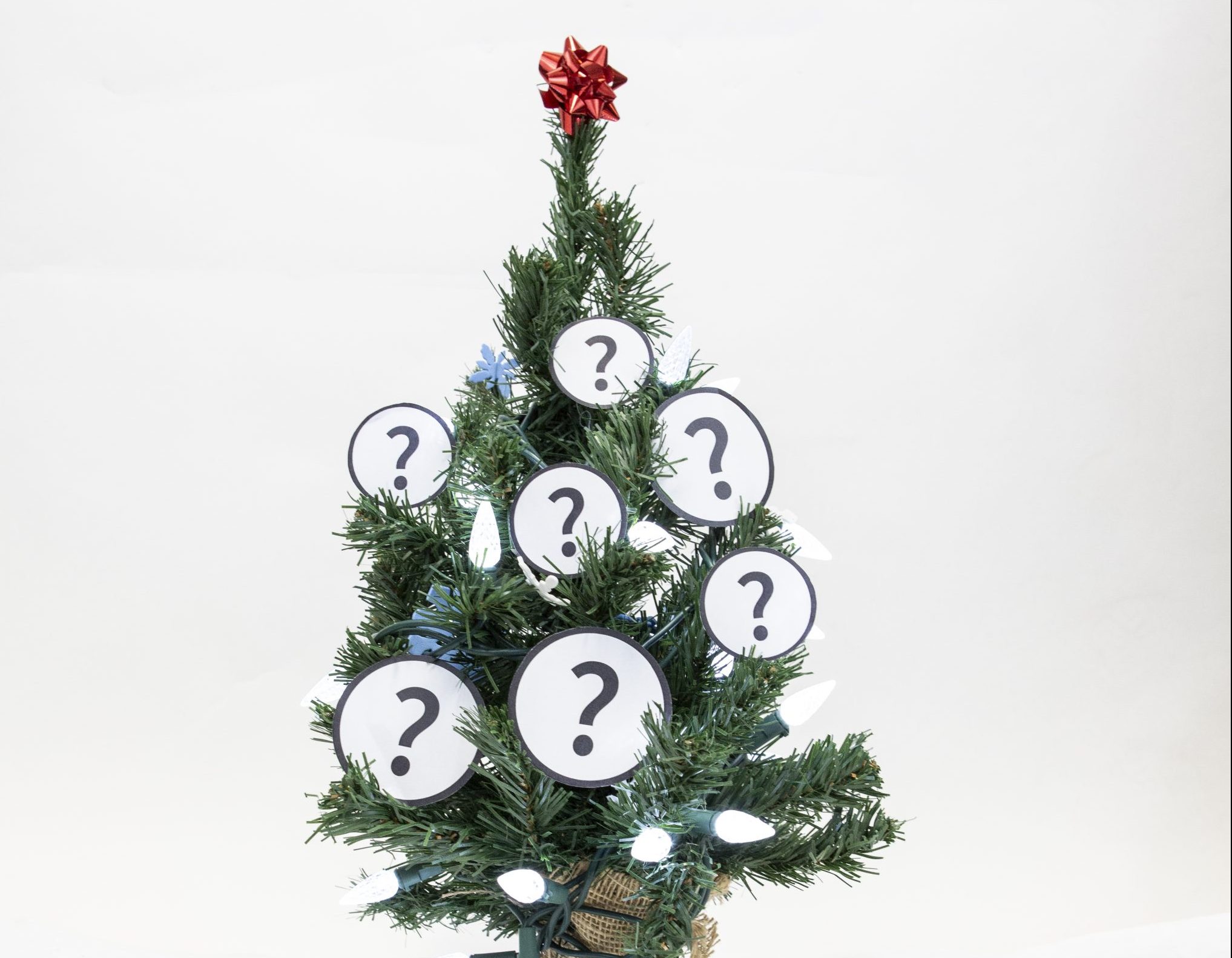Are you happy with the term holiday? Another look at word choices this winter


“I hate when they say that. Just say Merry fucking Christmas.”
I remember this man from my hostessing job when I was in grade 12. This time of year, I always wished my customers Happy Holidays as they left for the night.
This man didn’t seem to like that very much, and made that loudly clear to the woman he was eating dinner with as they left the restaurant.
I’m Baptized Catholic myself, but I knew that some of my customers wouldn’t be. Apparently, at least to one person, I was participating in the so-called war on Christmas.
I still am, if that’s the view that you take. The holiday season is called that for a reason — of course we have Christmas, but we also have Hanukkah, Kwanzaa, misoka and countless others.
So, this war on Christmas — is it really even a thing? Do people honestly believe in it, or are we all overreacting?
“I don’t think a lot of people would be offended if you said Merry Christmas to them,” said Laura Goldfarb, a third-year student here at Wilfrid Laurier. Goldfarb is also co-president Hillel Laurier, a subsection of the largest Jewish campus organization in the world.
“I think it’s always good to be cognizant of other cultures, and to say ‘happy holidays’ is the safe route.”
Goldfarb, despite not celebrating Christmas, is still looking forward to the holiday season. She, as well as others who identify as Jewish, will be celebrating Hanukkah around the same time that Christians will be celebrating Christmas.
“Hanukkah is basically the Jewish festival of lights. It’s eight days long and it basically celebrates the Jews winning the war over the Greeks in some point in history. That’s kind of a very crude explanation of an important tradition,” Goldfarb said.
“The only thing Hanukkah really has in common with Christmas is that it comes around the same time every year,” she explained.
“When you say Merry Christmas, you’re not acknowledging Hanukkah. That’s just the truth,” Goldfarb said. “So when you say happy holidays, you’re acknowledging that holiday too, which is nice because Jews love Hanukkah! It’s a fantastic holiday.”
Goldfarb also shared some of the traditions associated with Hanukkah, including lighting the menorah, spinning dreidels for chocolate money and eating jelly doughnuts. Not coincidentally, Hillel will be in the concourse with jelly doughnuts soon.
“People who want to secularize the winter season, I don’t think they are warring against any particular festival or religion.”
“These are some customs that everyone will like — you don’t have to be Jewish to enjoy them,” she said.
However, if there is one holiday that has been secularized the most already, we’d have to come back to Christmas. Even a large number of atheists celebrate Christmas with their families. Is this really the war on Christmas, rather than accepting other religious holidays around the same time?
When I asked Joseph Goodwin, campus minister, St. John Paul II Student Centre, and the Catholic Chaplin as part of the multi-faith resource team here at Laurier, whether he believed in a war on Christmas, he strongly answered with a no, through laughter.
“I don’t think anybody in the history of Christmas has ever decided ‘war on Christmas’ is appropriate, unless they were actively, violently persecuting Christians, which has happened sometimes throughout history,” he said.
“People who want to secularize the winter season, I don’t think they are warring against any particular festival or religion.”
Both Goldfarb and Goodwin had a similar response when asked whether or not they’d be offended if someone wished them well on a holiday that they didn’t personally believe in.
“I’m Jewish. If you say Merry Christmas to me, I say Merry Christmas back and I’m not offended at all,” Goldfarb said. “But other people may have different reactions to it.”
“I’d say happy Hanukkah right back, because it would appear that this person is Jewish, and if they said happy Diwali or happy Eid to me, I’d assume that they’re Hindu or Muslim respectfully, and I’d say it right back to them,” Goodwin said.
That’s not to say that Christians want to relinquish all hold on their religious holiday this season, though. Christmas is an important holiday that Christians still hold onto very tightly.
“My prime directive is not to be diverse and accepting. Everyone has their own worldview that they approach life with,” Goodwin said. “Mine centers around being a Christian, so that’s not an exercise in diversity, that’s an exercise in being who I am.”
“Of course, I support and encourage everyone to be who they are,” he continued. “As a Christian celebrating Christmas, part of my sort of incarnation of truth is to go into the world and be who I am and show God to people.”
“It’s almost out of my mind to think ‘how do I go about being diverse and accepting.’ Because I’m a Christian, I’m accepting because that’s the model of Christ.”
As for a last takeaway message, both Goodwin and Goldfarb looked to a positive note on the holiday seasons.
“[Christmas] is the time when we should be the most open — the most tolerant,” Goodwin said. “There’s no Christian culture that’s there to be reclaimed.”
“If you’re the type of person who really wants to be aware, be respectful and appreciate other cultures, go with happy holidays, there’s nothing to lose,” Goldfarb said.
To each of you, happy holidays. On behalf of all of us here at The Cord, I hope the holidays you celebrate — no matter what they are or aren’t — are rewarding, restful, and remarkable.
The Cord reached out to various other religious Laurier groups with an opportunity to share their holiday traditions, but they did not respond to requests for comment or declined to be interviewed.


